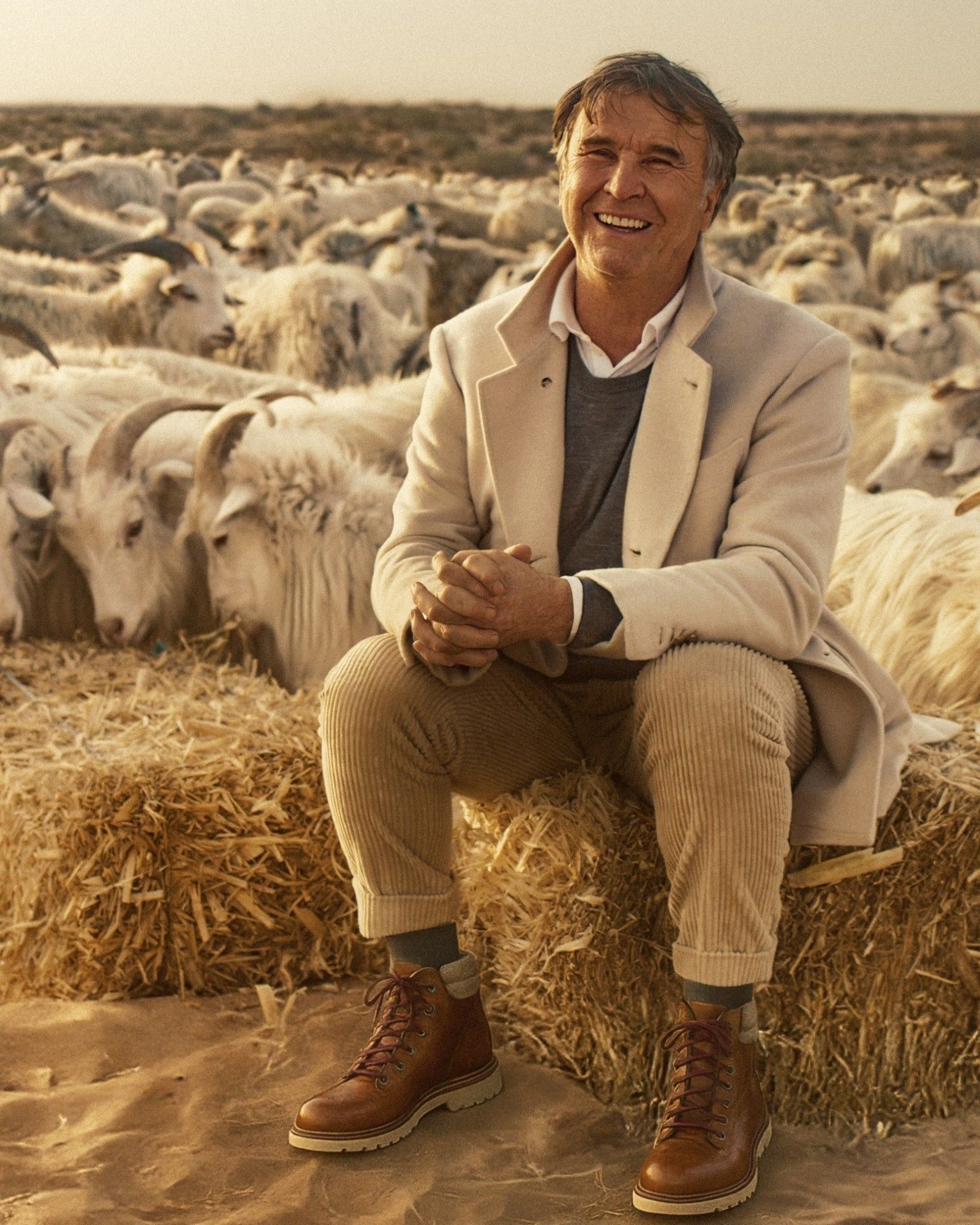
Brunello Cucinelli dedicated a letter to young people around the world Here is the full text that the entrepreneur and founder of the eponymous brand released today
As is well known, the philosophy that has made Brunello Cucinelli one of the most prosperous brands on the market is the fact that it has based its growth on ideals that go far beyond the dry race for quarterly growth that seems to drive other brands and luxury groups. It is a philosophy that aims to give back to the world what has been earned according to a very Greek concept of harmony, but which also includes the idea of a way of life animated by sincere values, by concreteness and slowness – in short, the antithesis of the unhealthy restlessness that the late-stage capitalist society we live in, with its abyssal inequalities, exploitation of precarious workers, commercialization of every aspect or right of human existence, and its cruel paradoxes. In his letter, Brunello Cucinelli hopes for a better destiny for the world and for humanity – a destiny that, at least in part, rests in the hands of the youth.
Here is the full text of the letter:
Oh my dear young people,
Your humanistic revolution turns its heart to the future, but looks to the past, and from the past it learns that many important men, over the centuries, have criticized those of your age with harsh words.
Priest of Ancient Egypt: Our world has reached a critical stage, our children no longer listen to their parents, the end of the world cannot be far away.
Inscription on a clay pot in Ancient Babylon (5000 years ago): This youth is rotten to the core. The young are evil and lazy. They will never be like the youth of the past. Today's youth will not be able to preserve our culture.
Hesiod: There is no hope for the future of our country if today's youth take power tomorrow. This youth is unbearable, shameless, terrible.
Socrates: Our youth love luxury, are ill-mannered, mock authority, and have no respect for elders. Children nowadays are tyrants, they don’t rise when an elder enters a room, they answer back to their parents. In a word, they are bad.
Seneca: (Youth is) devoted to pleasure and weakened by the corruption of an era marked by luxury. The gloomy picture of these depraved youngsters ends with the observation that: they, born weak and spineless, do not safeguard their chastity and endanger that of others.
Saint Augustine: Youth is a dangerous plague, because the young are ignited by passion, swollen with hope, consumed by pleasure – but theirs is the hope of the desperate, the hope for perishable things, which stimulates passion without satisfying it and renders them incapable of facing the truth.
Boccaccio attacks the “modern youth”, vain, shameless and “softened by too many delicacies.”
Oh my beloved young people,
Every day I think of you as the center of the world; when I was a child, my eyes were fixed on my parents, and from their actions, especially in my early years, I learned the rules of life, those rules that instinct, according to nature, had not given me.
I look at you, young people, and I see you in the past and in the Tempus novum that is about to arrive.
We must feed ourselves on hope, but perhaps hope alone is not enough, and so we must also put action into practice, as a kind of humanistic revolution illuminated by memory and fixed on tomorrow, because the future is a promise and a gift that awaits us – that awaits you, women and men of tomorrow – and we must desire it; that is what values are for, they give meaning to life.
For dozens of centuries we have had values that today are sometimes questioned; people talk about change, about adapting to change as the only way to be happy; but it is also true that values are still part of the human condition, and for this reason, they dwell in the eternal. Certainly without them, the Tempus novum awaiting us would become a vain chimera; the ancient philosophers told us that happiness is not a right, but a legitimate desire to aspire to, an end achieved through harmony of heart and mind.
If there is a phase of life where values are born, it is youth, when every feeling, every boldness, every passion is one with the stunning vigor of nature – the one that gives us blazing sunsets, sublime dawns, the wind, the sun, and the scent of thousands upon thousands of flowers that bloom spontaneously in the fields from who knows where in the world.
I see you, oh young people, as one of those flowers – you too full of vigor, fragrant with your dreams and the distant horizons that your soul inhabits. Youth seems to me the most enchanted and fertile place; every memory of mine from those times is imbued with a certain excess of meaning that I now only barely perceive in special moments; but I know that nothing is like before, when in my imagination a simple wooden boat became a steamboat crossing the ocean, and that piece of wood meant much more than its form and its substance.
Sometimes we see around us something like an ailment of the soul, a lack of desire, but Plato, in the poetic myth of Poros and Penia, parents of Eros, told us with enchanted words that desire is born of lack. To love seems to me a sublime condition, but if you want it to live long, make sure to be absent just a little from the one you love.
I do not know, oh my dear young people, if these words caress your soul, but if you wish to desire the New Time, if you want to make it real and alive, you must inhabit it with the moderation the Greeks taught us, little by little, respecting it as children of Creation, so that it will not burn in the wind but will live forever; all this, I am convinced, cannot happen without a humanistic revolution, and you can be its engine.
Remember that school is a privilege for you, because up to a certain age it educates you, and then it instructs you; be grateful to school, which brings you close to books – and even those, to desire them, must be a little absent, and you will love them more if you have to search for them in a library, maybe borrow them, and you will take the greatest care of them, because soon you will have to return them.
A library, said Emperor Hadrian, is like a granary of the soul; nourish yourselves, oh youth, with that grain, live the library not as a warehouse of knowledge, but as a generator of understanding; from those books can be born the dream of a humanistic revolution.
Aristotle said that the mind does not open if the heart is not opened first: so you, yes you, who live in every part of the vast world where I imagine you, you who today suffer from a certain ailment of the soul, arm yourselves with dreams, with brotherhood, with gentleness, with moderation – and with these gentle weapons, I beg you, become the actors of a humanistic revolution turned to the Tempus novum.
My dear young people, I beg you, disprove those wise men, who were perhaps weak in their reflections you have read; be instead the mirror of another reality, the one I see, and not only I – that of young people full of love, symbols of life, daring, treasure chests of precious gems, expressions of nature that goes on endlessly creating, in need of something that only we parents, grandparents, and adults can give you: a listening ear, a word, a caress; such things are nourishment for the soul.
Brunello















































